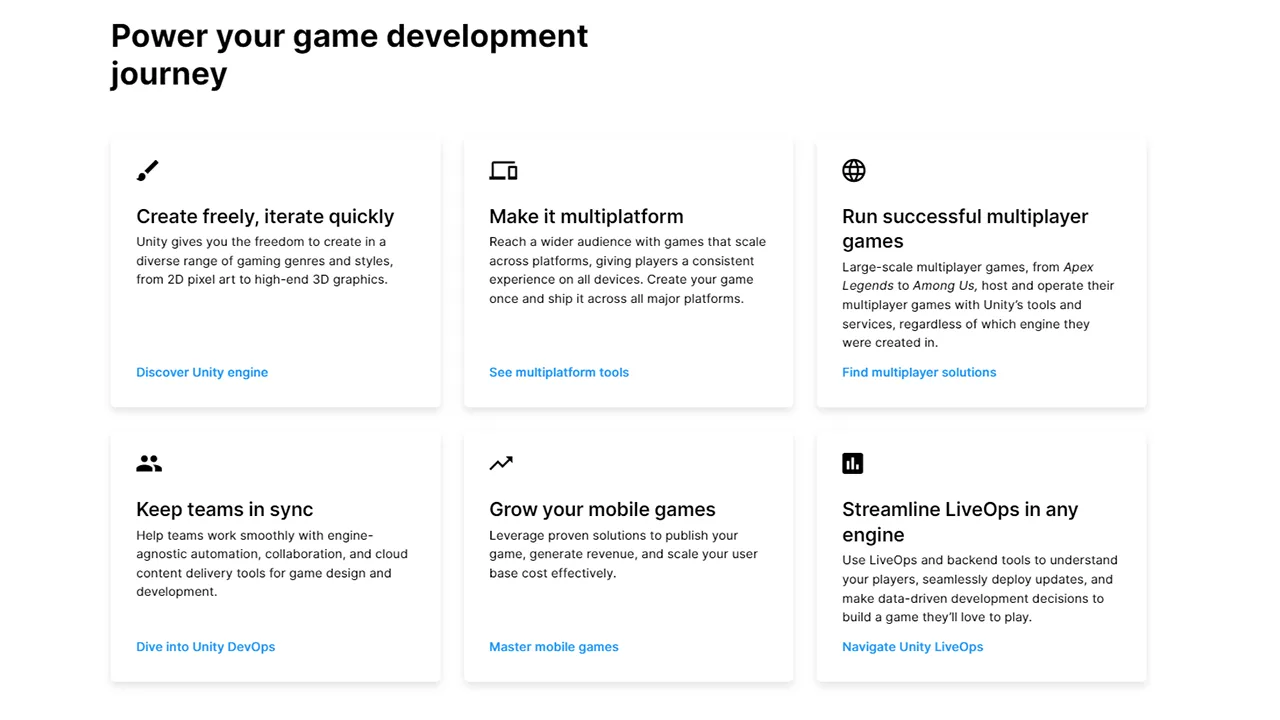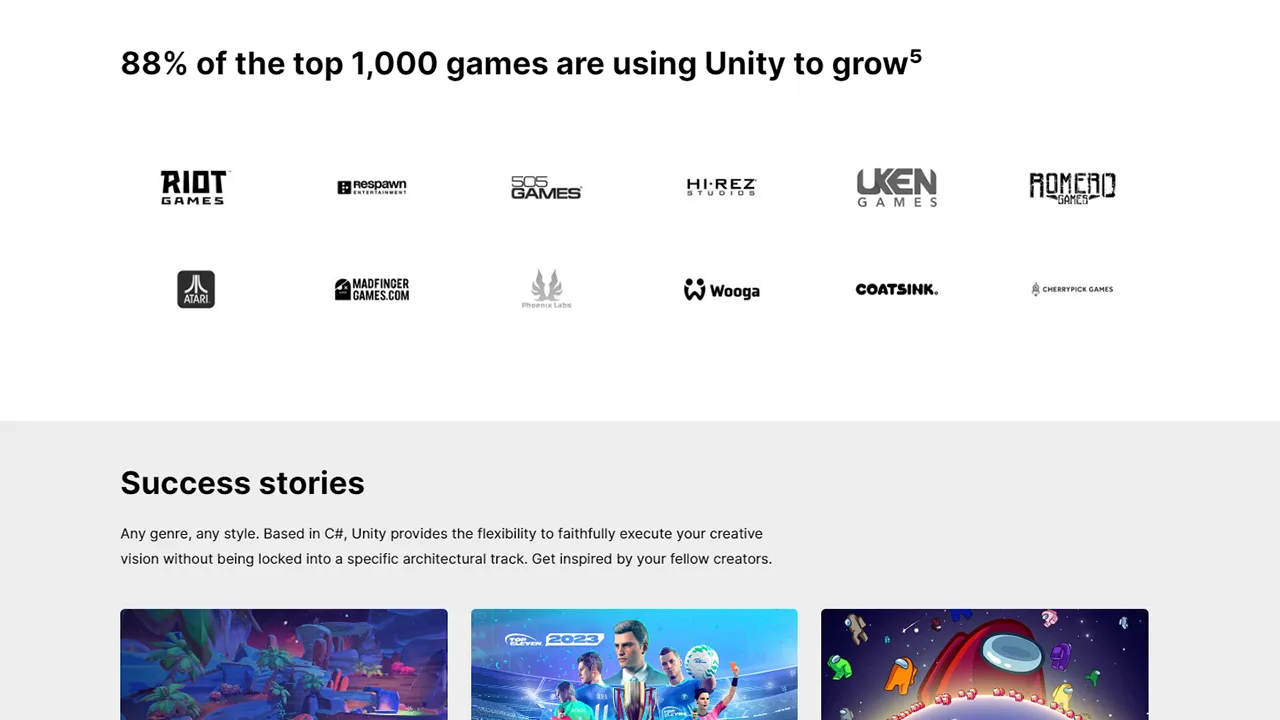Whether you are a developer or a gamer, you have heard about Unity Engine’s changes in pricing model and package. This has caused a huge backlash in the community, and many devs are sharing their thoughts on Unity runtime fee also being called an install fee, game engine fees, etc. If you are out of the loop and want to know what is happening to Unity game engine, here’s a summary.
Update: Unity has apologized for the Install Fee policy change.
We have heard you. We apologize for the confusion and angst the runtime fee policy we announced on Tuesday caused. We are listening, talking to our team members, community, customers, and partners, and will be making changes to the policy. We will share an update in a couple of…
— Unity (@unity) September 17, 2023
Original article follows.
What is Happening to Unity Game Engine? (FAQs)
Unity is bringing about major policy changes which basically charge studios every time their game gets installed on a new device. This is called the Unity Runtime fee. Here’s the official statement from Unity’s blog:
Effective January 1, 2024, we will introduce a new Unity Runtime Fee that’s based on game installs. We will also add cloud-based asset storage, Unity DevOps tools, and AI at runtime at no extra cost to Unity subscription plans this November.
Unity Runtime Fee Explained
Unity Engine is made of two software components namely, the Unity Editor and the Unity Runtime. Unity Runtime is the code that runs on your devices, and now the Unity Runtime fee takes into consideration every time a ‘qualifying game’ is downloaded by a user.
So, in a nutshell, studios have to pay Unity a certain amount for every game that is installed by users, once the thresholds are met. When the product is installed and initialized on an end user’s device, Unity will count it as an install.
And yes, it will even count as a new install if a user (who already owns a game) downloads it on a new device.
Naturally, this policy change has caused a furor in the game dev community because this will greatly impact developer revenue. Indie studios, especially, will be most hit due to this change.

Why is Unity Game Install Fee being implemented?
If you’re wondering why they decided to have a Unity Runtime fee, here’s the official statement via their blog:
“We chose this because each time a game is downloaded, the Unity Runtime is also installed. Also, we believe that an initial install-based fee allows creators to keep the ongoing financial gains from player engagement, unlike a revenue share.”
Will Reinstalls be Charged Unity Game Install Fee?
- No, Unity is not going to charge the Runtime fee for reinstalls.
More details about the fee amount and thresholds are mentioned further below. And yes, this not only includes paid games but also games that are on the free-to-play/in-app purchases and freemium model.
Will Game Demos and Open/Beta Access Games also be Affected?
Here’s the answer Unity has provided:
“If a user can access a full game (e.g. via an in-game upgrade or purchase), then installs count toward the fee. If a user can’t access the full game (e.g. only one level is offered) then that demo would be considered a separate package and not count toward the fee. Early access games are not considered demos. In addition, we don’t intend to capture or count installs for QA testing.”
Who does the Unity Runtime Fee apply to?
What makes the game eligible for a Unity Runtime fee? There are two conditions to fulfill:
- The game has passed a mininum revenue threshold in the past 12 months.
- The game has passed a mininum lifetime install count.
- Unity Personal and Unity Plus: Developers that have made $200,000 USD+ in the last 12 months and also have mininum 200,000 lifetime game installs.
- Unity Pro and Unity Enterprise: Those that have made $1,000,000 USD+ in the last 12 months and also have mininum 1,000,000 lifetime game installs.
So if you fulfill the criteria, the Unity Runtime fee will be applicable to you as a developer.
Unity Blog: “We set high revenue and game install thresholds to avoid impacting those who have yet to find scale, meaning they don’t need to pay the fee until they have reached significant success.”
The official page also has steps for developers to check if the Unity Runtime fee applies to their game so they can estimate applicable fees.
The fee is applicable to new installs starting from January 1, 2024 and it will be a monthly fee.
How much Unity Runtime fee will developers have to pay?
Based on the table provided by Unity and the different tiers of Unity, these are the estimated fees if thresholds are met:
- New Installs per month: 1–100,000
- Unity Personal and Unity Plus: $0.20 per new install
- Unity Pro: $0.15 per new install
- Unity Enterprise: $0.125 per new install
- New Installs per month: 100,001–500,000
- Unity Personal and Unity Plus: $0.20 per new install
- Unity Pro: $0.075 per new install
- Unity Enterprise: $0.06 per new install
- New Installs per month: 500,001–1,000,000
- Unity Personal and Unity Plus: $0.20 per new install
- Unity Pro: $0.03 per new install
- Unity Enterprise: $0.02 per new install
- New Installs per month: 1,000,001+
- Unity Personal and Unity Plus: $0.20 per new install
- Unity Pro: $0.02 per new install
- Unity Enterprise: $0.01 per new install
How will the Unity Runtime fee be calculated?
Once the minimum thresholds are met, the Unity Runtime Fee will be calculated based on the applicable rate (depending on the number of installs, the country of installs, and the user’s Unity plan) multiplied by the number of eligible installs.

Which Countries do the standard Unity install fees apply to?
United States, Australia, Austria, Belgium, Canada, Denmark, Finland, France, Germany, Ireland, Japan, Netherlands, New Zealand, Norway, Sweden, Switzerland, South Korea, and the United Kingdom.
Emerging market fees apply to app installs in all other countries.
Emerging market rate:
- New Installs per month: 1+
- Unity Personal and Unity Plus: $0.02 per new install
- Unity Pro: $0.01 per new install
- Unity Enterprise: $0.005 per new install
Are there any Discounts?
If developers choose to also use other Unity services like Unity Gaming Services or Unity LevelPlay then they can have a Unity Runtime fee reduction.
Unity Plus is being closed down for NEW subscribers effective immediately from September 12, 2023. Existing subscribers will get an email in October with an offer to upgrade to Unity Pro for one year at the price of the current Unity Plus.
Do developers still need to pay for my Unity subscription plan?
Yes. Aside from the Unity Runtime Fee, the Unity subscription plan still has to be paid for. The invoice method will be the same, and it will be charged monthly regardless of your Unity Plan payment cycle.
So, that’s what’s happening to the Unity game engine. For more in-depth information head over to the sources here and here.

